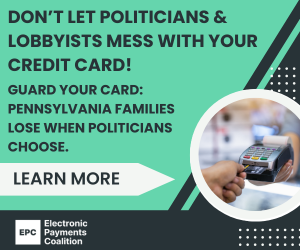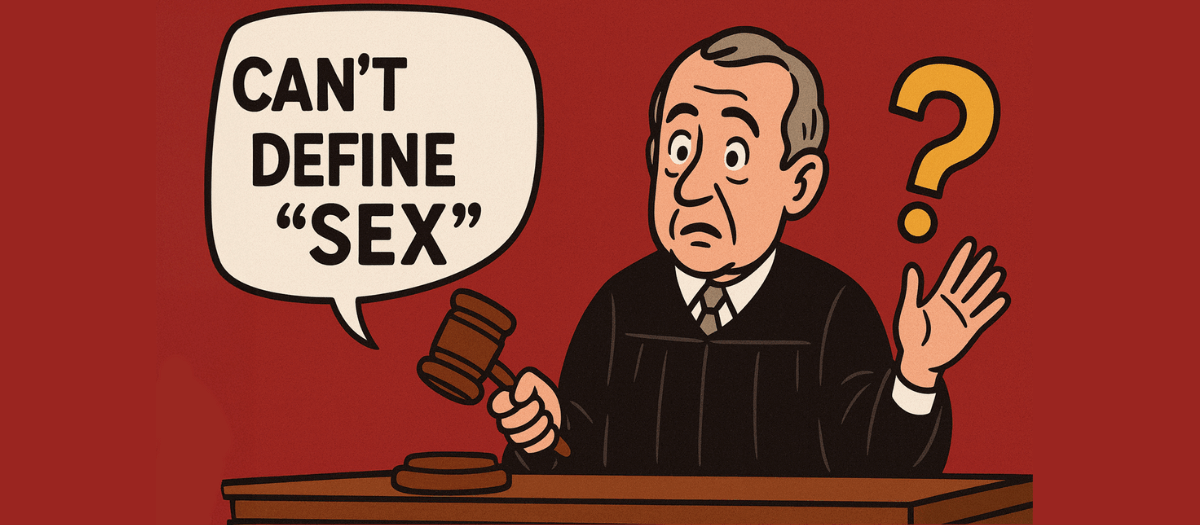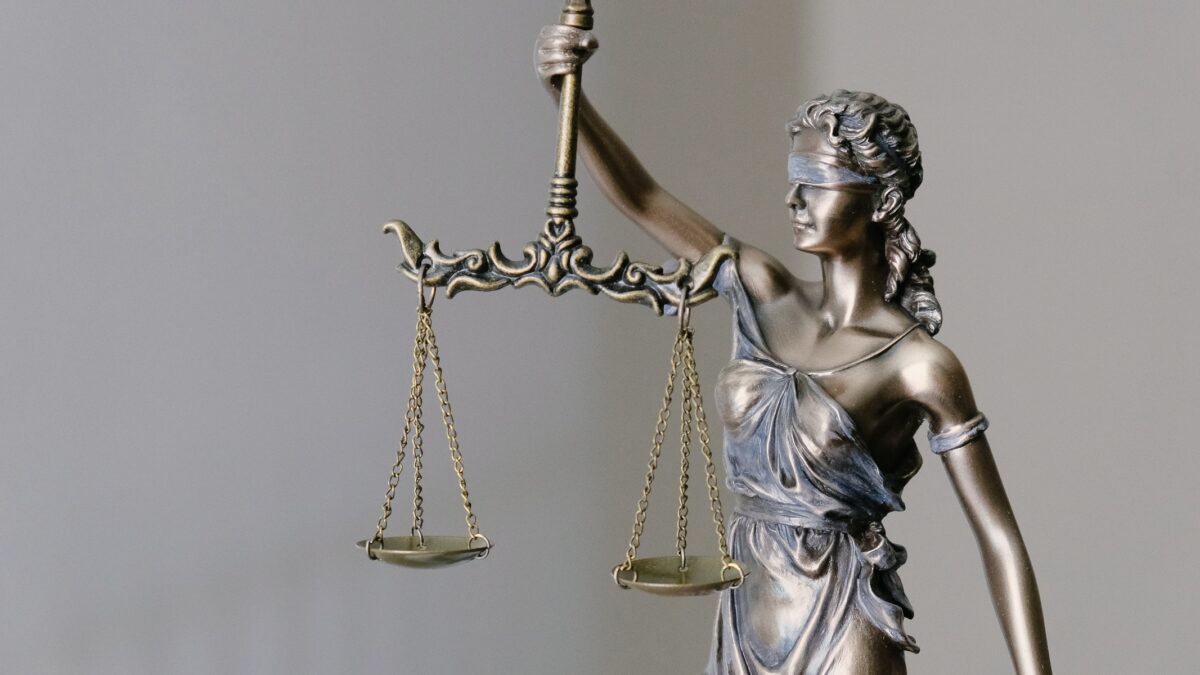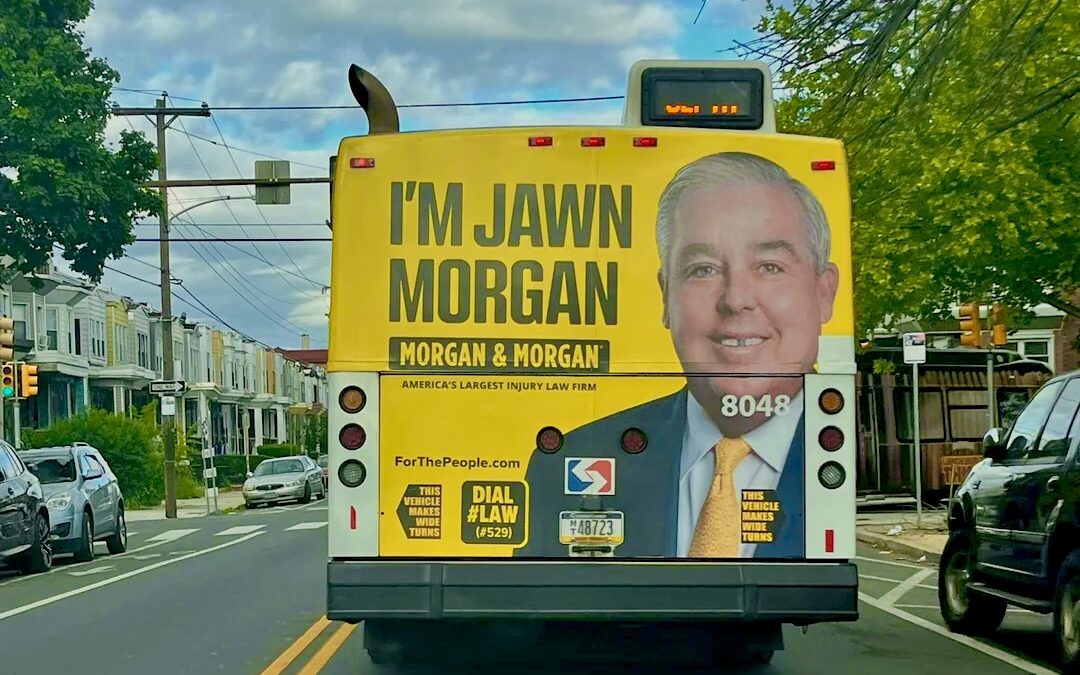Thomas C. Mandracchia: “I’d like to correct the record, Your Honor.” A response to Andy Bloom on Trump’s guilty verdict.
A jury convicted former President Donald Trump of 34 felony counts of falsifying business records. Andy Bloom is one of the many who are unhappy with the case. He wrote an op-ed in this publication explaining as much. However, Mr. Bloom gets a lot wrong.

I graduated from the University of Pennsylvania’s law school. I served two years as a prosecutor in Philadelphia from 2018 through 2020. As proof that I’m not just a left-wing hack, I published pieces in local papers criticizing my former boss, Larry Krasner, after leaving that job. See here and here. I now litigate complex commercial and corporate cases. As a result, I care deeply about legal education, and am dismayed by the many inaccurate attacks on this historic trial in the media. I intend to correct the record here.
To follow along, you can access court filings, Judge Juan Merchan’s rulings, the jury instructions, the trial transcripts, and the trial exhibits here. I have aimed to link specific court documents throughout, but I’ve been told that the links to specific documents sometimes fail. So, I am providing the general link as well.
For background, Manhattan DA Alvin Bragg charged Trump with 34 felony counts of falsifying business records with intent to further or conceal another crime under NY PL § 175.10. Normally, falsifying business records is a misdemeanor. But, if you do it with intent to further or conceal another crime, or “object offense,” it gets bumped to a felony. Much of Mr. Bloom’s confusion arises from what the object offense was and how proving “intent” to commit or conceal an “object offense” works.
Before trial, Trump’s defense team moved to dismiss the indictment on many grounds, including that the prosecution failed to identify a viable “object offense.” Judge Merchan denied the motion to dismiss, and in doing so, deemed viable three potential object offenses: (1) the Federal Election Campaign Act’s (FECA’s) restrictions on corporate and individual campaign contributions; (2) N.Y. Election Law § 17-152; and (3) N.Y. Tax Law §§ 1801(a)(3) and 1802. To understand why these were all valid “object offenses,” see Judge Merchan’s February 15, 2024 opinion denying Trump’s various dismissal arguments.
After trial, the parties hashed out the jury instructions. The prosecution only ended up choosing one “object offense,” violation of N.Y. Election Law § 17-152. But violation of § 17-152 still implicated the other object offenses I mentioned above. This was a bit more confusing, but in reality, it was three straightforward steps.
First, the jury had to find the falsification of business records. Second, the jury had to find the “object offense,” namely that Trump falsified the business records with “intent” to further or conceal violation of N.Y. Election Law § 17-152. This election law says: “Any two or more persons who conspire to promote or prevent the election of any person to a public office by unlawful means” is guilty of a crime. Third, in finding the violation of § 17-152, the jury had to find the use of “unlawful means,” which could include the FECA or tax law violations I mentioned above, or falsification of other business records. The jury instructions, available here, outlined these steps starting at page 42 of 55.
In sum, the jury had to find beyond a reasonable doubt that Trump falsified business records with intent to conceal the promotion of his candidacy through violations of campaign finance laws, tax laws, or falsification of other records.
Proving a crime with “intent” to commit or conceal an “object offense” is not at all novel or experimental. Consider an analogy to a burglary. Burglary is “breaking and entering with intent to commit a crime therein.” Breaking into a home may constitute a crime on its own, like trespass, but if you break in with “intent” to commit other crimes, such as theft, it becomes burglary. This is essentially the same as falsifying business records with intent to further or conceal another crime.
Moreover, a jury does not have to unanimously agree on what the crime is that you intend to commit once you break in, just that there was “intent to commit a crime therein.” Imagine that police catch a man breaking into a home with a crowbar, wearing a backpack, containing a gun and zip ties. Since the police stopped the man, we cannot know for sure what crime he intended to commit, but given his crow bar, gun, zip ties, and backpack, we can infer beyond a reasonable doubt that he intended to commit some crime once inside the house. The jury would not have to unanimously agree on a specific crime, just that there was evidence beyond a reasonable doubt of intent to commit a crime therein, such as assault, kidnapping, murder, or theft. This is similar to the jury in Trump’s case not having to agree on the “object offense” or the “unlawful means.” In fact, when the parties were hashing out jury instructions with Judge Merchan, Trump’s legal team admitted that New York law does not require unanimity on the “unlawful means.” You can see this on pages 4402 and 4403 of the May 21, 2024 trial transcript.
Beyond a valid legal theory, the prosecution also proved the elements of the crimes charges beyond a reasonable doubt: Trump was running for President and thus wanted to hide his one-night stand with porn star Stormy Daniels. He had Michael Cohen pay Ms. Daniels $130,000, which constituted an illegal campaign contribution because it both came from Cohen (not Trump himself) and exceeded legal limits. Cohen wanted reimbursement. So, Trump, his CFO Allen Weisselberg, and Cohen decided to disguise repayment to Cohen as legal expenses through a series of false invoices, checks, tax forms, and ledger entries claiming that the reimbursement was actually for legal fees. They even paid Cohen back $260,000 for this expenditure to disguise it as income, since Mr. Cohen had a roughly 50 percent tax bracket at the time. And so, there you have it: Trump falsified business records with intent to conceal the promotion of his candidacy through violations of campaign finance laws, tax laws, or falsification of other records.
The prosecution presented an overwhelming number of documents and testimony over the course of weeks. These documents included falsified checks signed by and falsified invoices reviewed by Trump himself, which you can see here. Some key testimony came from people who still admire Trump, such as David Pecker and Hope Hicks. You can read the trial transcripts here.
Mr. Bloom disagrees with me that this was a fair, legally and factually sound trial. You be the judge.
In addition to confusion over the nature of the charges and the unanimity of the jury, which I already addressed, Mr. Bloom incorrectly claims that “the statute of limitations had run out.” The statute of limitations for Trump’s charges was five years. The earliest conduct charged was February 14, 2017. That would normally mean that the charges had to be brought by February 14, 2022. However, on March 20, 2020, because of Covid, the Governor of New York “tolled” or paused “any specific time limit for the commencement” of any felony through May 6, 2021. This gave the prosecution an extra one year and 47 days, or until April 2, 2023. The indictment was filed March 30, 2023.
Next, Mr. Bloom claims that DA Bragg “ran on getting one person – the nation’s former leader – not to prosecute crime.” In campaigning, DA Bragg did note his experience in litigating against the Trump family, which makes sense, given that Trump and his company seem to commit crimes left and right in Manhattan. Perhaps that is what Mr. Bloom means. But as to the investigation into Trump, DA Bragg said: “I don’t know where this investigation will go. I don’t want to prejudge it. But, these types of investigations — white-collar investigations — I’ve been involved with for years, both doing them myself and also supervising them.” This is hardly the political spectacle Mr. Bloom describes without citation.
Further, even if we agree that this prosecution was in part motivated by politics (it definitely was), this is how prosecutions work at the local, state, and federal level. Prosecutors’ offices have limited resources and must make political determinations. If someone were to run against DA Krasner here in Philadelphia on a “law and order” platform and win, it would certainly be partially political when they implement tough-on-crime policies. What is inappropriate is a prosecution only based in politics. The Trump trial does not fit the bill. His guilt was clear as day. In fact, John Edwards, a Democrat, did something similar and was prosecuted.
Mr. Bloom then claims that prosecutors got to pick Judge Merchan, when in reality, he was randomly assigned.
Mr. Bloom also incorrectly suggests that Judge Merchan was conflicted. Judge Merchan did donate $15 to Biden’s campaign, and political campaign contributions were a violation of the judicial ethics code. But preferring a different candidate for President is not grounds for recusal. All judges have political leanings, and many judges do not like the criminal defendants in front of them. Yet, this does not mean a judge is conflicted. Indeed, Judge Eileen Cannon continues to preside over Trump’s classified documents case in Florida, despite being a Trump appointee. Similarly, Judge Merchan’s daughter being an active Democrat is irrelevant, as nearly all judges have politically active family members — including several on the Supreme Court.
Next, Mr. Bloom claims that the prosecution’s opening statement was made by a federal DOJ prosecutor, rather than a Manhattan DA prosecutor. This is false. Matthew Colangelo gave the opening statement. He has worked for the Manhattan DA since 2022. He used to work for the DOJ, but moves between state and federal prosecution offices are common.
Mr. Bloom then complains about a routine and constitutional gag order. As a criminal defendant indicted by a grand jury, you cannot go around trashing witnesses. And Judge Merchan — as examples of his fairness — required Michael Cohen to stop making out-of-court attacks on Trump and declined to jail Trump despite ten gag order violations, something few criminal defendants, if any, would get away with.
Mr. Bloom also claims that Judge Merchan improperly excluded an expert that Trump wanted to call. But this ruling was actually routine because the defense wanted to call an expert on the law, not on facts. Typically, legal experts are not permitted to testify because the judge is the one who provides the law to the jury.
Finally, Mr. Bloom has an issue with the fact the jury believed Cohen. But that’s their call, and it was the right one. Is Cohen a liar and criminal? Yes. But, unsurprisingly, in criminal conspiracies, key witnesses who participated in the conspiracy are also . . . you guessed it: liars and criminals. The prosecution corroborated Cohen’s testimony with documents, texts, call logs, and even other witnesses who still admire Trump, like Pecker. The jury instructions at page 22 of 55 also stated that, because Mr. Cohen was an accomplice to the crimes with which Trump was charged, the jury was required to find corroboration of Cohen’s claims elsewhere in the record to believe him. That’s just how strong the corroboration was in this case.
In short, Mr. Bloom’s complaints, and similar complaints throughout the media, are on weak footing. There may, of course, be valid grounds for appeal of which I’m unaware. We will have to see what Trump’s team argues before judging.
But I fear that, due to a host of misunderstandings and errors, many incorrectly view a major victory of our system as a failure. We always complain that we want to hold the corrupt and powerful accountable. And here, a group of ordinary citizens, by the power invested in them by our laws, said to one of the most powerful men on earth: you play by the same rules we do. We can lament the fact that one of our former leaders is a felon. We should not lament the fact that our justice system correctly and fairly found him so.
Thomas C. Mandracchia, Esq. is a Penn Law graduate, former prosecutor, and litigator.





I have a question regarding the timeline.
If Trump or his company made the payments to Cohen after the election, how could they be connected to intent to effect the outcome of the 2016 election?
It’s a fair question! I think the way they monkeyed around with the statute of limitations is what’s going to get this overturned
Because Cohen paid off Stormy Daniels at the request of Trump in the lead up to the election. All Trump did was reimburse Cohen.
What was the second crime, the one that made misdemeanors turn into felonies? And what made Cohen’s payment an illegal campaign contribution?
Is it possible that the payment was made as to not have his wife and family know about it, and save the embarrassment?
And if it was a campaign finance issue, why wasn’t Trump’s legal team allowed to call and question their CF expert regarding campaign finance rules?
So many questions…
Since when has Trump cared about embarrassing his family, especially with his wives. While married to Ivana he had an affair with Marla Maples and Ivana found out when he took his wife on vacation and had Marla stay at the same ski resort. Or how he had multiple affairs after marrying Melina including while she was pregnant with Barron.
That’s still just an opinion, which means nothing in a court. Especially your opinion.
Who is to say that it the legal payment is solely meant to influence the election? Nobody, unless there is hard evidence (e-mails, conversation, etc.) saying so. They can’t even prove that the affair happened. I guess Stormy wasn’t wearing a blue dress.
Who is to say that this wasn’t a legal payment? The laws written to cover this, the jury that was selected by both parties, heard and saw evidence like the witnesses, the payment, the agreement that was signed regarding the payment, the check, the repayment to Michael Cohen, and any number of documented conversations.
Payment for an NDA, in itself, is not illegal. You’re air balling again.
It will all come out in the appeals court – jury nullification, conflict of interest, statute of limitations, unconstitutional gag orders, etc., etc. and all those laws you mentioned that were perverted by Bragg.
Oh – and another thing: the author states that judges are allowed to be political, and seemingly so are their families, yada yada, but if this judge’s daughter has a vested interest in damaging Trump, as evidenced by her client list, including Kamala Harris’s campaign, Biden / Harris presidential campaign, and Adam Schiff’s PAC, this is cutting well beyond a casual political affinity. He absolutely should have recused himself.
How do the actions of the judges daughter directly affect how the Judge Merchan rules? If Judge Merchan should recuse himself then Supreme Court Justice Thomas should recuse himself from any hearing regarding Trump and the election due to their woves involvement with Trump
Simple, pimple: The Merchan’s have a financial interest in the outcome. The Thomases do not.
The Thomas’s and their family have benefited at a vast scale due to their relationship with Harlan Crow. Ivanka and Jared befitted financially from their relationships with foreign governments or those seeking to curry favor when they worked in the White House and after.
Ivanka and Jared aren’t judges. What does that even mean?
Ginny Thomas directly benefits from her relationship with Trump as she is a paid employee of a Conservative thinktank. If you think that Judge Merchant’s daughter who does not live with or work for then lets talk about Ginny Thomas, the wife of Supreme Court Justice Clarence Thomas. Who contacted Mark Meadows repeatedly during January 6th to provide support for the insurrection.
Your Thomas’s comparison with Mechan has no merit. Thomas is part of 9 judges making a decision, not the sole arbiter on a trial.
You’re bringing unequal comparisons because you know I’m right.
Justice Thomas is part of the SCOTUS majority.
Even though Jared and Ivanka are not judges Jared and Ivanka, they benefitted from working directly for Trump in the White House including after they left the White House.
How does Merchan’s daughter benefit from this since she is not a judge? You’ve claimed the that the Merchan’s had a finical interest in the outcome. How do they financially benefit from this?
You’re bringing unequal comparisons because you know I’m right.
You make no sense at all. Merchan would do nothing to jeopardize his daughter’s career and financial wellbeing by not putting the screws to Trump. Her gravy train would derail. He is there to make sure that doesn’t happen.
Ivanka and Jared have zero to do with anything on this topic.
Michael Sweeney is right.
You make no sense at all. Merchan would do nothing to jeopardize his daughter’s career and financial wellbeing by not putting the screws to Trump. Her gravy train would derail. He is there to make sure that doesn’t happen.
Ivanka and Jared have zero to do with anything on this topic.
Michael Sweeney is right.
All we have here is your opinion and considering who its coming from that’s the problem. Other than your opinion you have yet to show any financial link between Judge Merchan, his daughter, and the trail.
Jared and Ivanka benefitted from their relationship with Trump when they worked for him in the Whitehouse. When Ivanka worked in the White House China fast tracked the approval of over 100 patents and Jared received 2 billion from the Saudi’s after he left the White House.
I am shocked and appalled by this well thought out article that relies on facts. Instead of conspiracy theories, MAGA talking points, and dismissing any differing viewpoint as TDS. This author should never be allowed to publish again and the person approved this article should be fired immediately. Clearly rational voices and fact based articles should not be allowed lest it damage the credibility of Broad and Liberty.
Unless of course that the people who run this website have finally realized that these unsubstantiated rants by Andy Bloom and others only make them unpalatable as a media source that fewer people want to read and advertisers avoid. But I can still dream that one day this will happen.
Yet here you are, tilting at windmills.
And here you are with no facts to back to your claims about Judge Merchan and his daughter.
I gave you facts about Merchan’s daughter’s occupation. It is in direct conflict with the judge’s legal obligation to be neutral.
Where’s your proof that Ivanka and Jared profited by being assisted by President Trump? What favorable influence were China and Saudi buying?
You just said that Jared had left the Whitehouse.
FedUp: I didn’t comment on this at all so what am I correct about? Strawman Judah? Don’t even waste your time with that character.
Thomas C. Mandracchia: “political campaign contributions were a violation of the judicial ethics code.” We both agree! “But preferring a different candidate for President is not grounds for recusal.” Noted – and we both agree – but as we both agree there was a violation of the judicial ethics code; is violation of the judicial ethics code grounds for recusal?
How do you know someone went to Penn? …They will tell you.
I enjoyed seeing in paragraph 22 that you reiterate Pecker still admires Trump but did not mention Hope Hicks… you have some integrity.
Hicks confirmed that Michael Cohen was not an official part of the campaign but would repeatedly seek to insert himself in various matters. Before he wrapped, Bove distanced Hicks from the actual charges in Trump’s case. “While you were focused on your job at the White House, you didn’t have anything to do with the business records of the Trump Organization 200 miles away, right?” Bove asked. Hicks responded that she did not.
Hicks said she sent Cohen a draft of her response to The Wall Street Journal “to get his input” before responding to the paper’s inquiry regarding efforts to keep McDougal’s story quiet. Cohen replied: “Instead…say: ‘These accusations are completely untrue and just the latest despicable attempt by the liberal media and the Clinton machine to distract the public from the FBI’s ongoing criminal investigation into Secretary Clinton and her closest associates.’” But Trump did not want that statement, instead suggesting he craft his own, Hicks said.
You litigate complex commercial cases? What do you think Mar-a-Lago is worth?
Here is a tricky question: Instead of opining on the merits of Kevin (Mr. Wonderful) Leary’s thoughts regarding the Mar-a-Lago valuation – please just run a “Google search” and contrasting “Brave search” and the after reading Straight Arrow News please provide the estimation of your cognitive bias regarding Trump.
““political campaign contributions were a violation of the judicial ethics code.”, Merchan donated a total of $45 that is no reason for him to recuse himself.
“Hicks confirmed that Michael Cohen was not an official part of the campaign but would repeatedly seek to insert himself in various matters.” and all they had to do was say no thank you we don’t need your help.
So the witness’s testimony stated that Cohen was not part of the campaign.
So why are his and Trump’s actions being charged as illegal campaign finance violation?
Merchan should be banished from the bench for being such a cheapskate.
Because Michael Cohen was Trump’s fixer, Trump ordered him to do it, and Cohen acted on Trump’s behalf. He does not have to be an employee of the campaign, he still broke the law, and the jury agreed with that.
What law? Paying for an NDA is not unlawful, and since he wasn’t part of the campaign and not operating in an official campaign capacity, it’s not a campaign finance issue. Really simple. ‘On Trumps behalf’ could be a million other issues related to business, finance, etc.